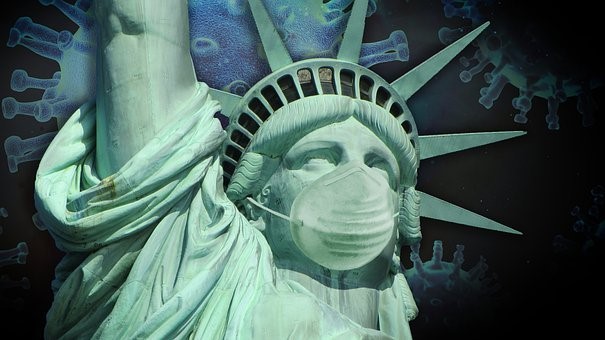| A number of U.S. governors, without benefit of legislative authority and without even going through the process of declaring martial law, have assumed extraordinary authority in response to the COVID-19 crisis. While reasonable arguments can be made regarding the necessity of their actions, the questionable legality and constitutionality of their actions remains in question. The issue is not whether extraordinary measures, some drastic, were required to address the spread of the pandemic from China. The problem is the implementation of severe measures and the curtailing of personal rights without appropriate legal measures permitting such actions, and indeed, whether there is any constitutional basis for some of the more questionable actions taken. The Stockholm-based International Institute for Democracy and Electoral Assistance (International IDEA) and the Washington-DC-based National Endowment for Democracy, supported by 73 pro-democracy institutions as well as political and civic leaders around the world, including 13 Nobel Laureates and 62 former heads of state and government, have addressed the issue in a “Call for Democracy Letter.” Overall, More than 500 political and civil leaders, Nobel Laureates and pro-democracy institutions have signed. The signatory organizations state that government response to COVID-19 has resulted in a crisis that threatens democracy. They point out that “Many governments around the world have assembled emergency powers that restrict human rights and enhance state surveillance, often disregarding legal constraints, checks and balances, and time frames for restoring constitutional order.” Their argument is that “The current pandemic represents a formidable global challenge to democracy. Authoritarian leaders around the world see the COVID-19 crisis as a new political battleground in their fight to stigmatize democracy as feeble and reverse its dramatic gains of the past few decades,” the letter emphasizes. “Democracy is under threat, and people who care about it must summon the will, the discipline, and the solidarity to defend it. At stake are the freedom, health, and dignity of people everywhere.” While it is unsurprising that authoritarian regimes are using the crisis to tighten their grip on power, some democracies have also introduced emergency powers without the necessary safeguards to ensure measures can be rolled back. Concern about COVID related restrictions have been prevalent. Jacob Gersham, writing in The Wall Street Journal notes that “State constitutions and laws give governors broad but not unlimited authority to restrict personal freedoms for the greater safety of their residents during an urgent health crisis… But …states aren’t guaranteed unlimited leeway…Attorney General William Barr has signaled support for legal challenges, saying the Justice Department would consider filing statements of interest for some plaintiffs…These are very, very burdensome impingements on liberty, Mr. Barr told conservative radio host Hugh Hewitt.” Not particularly controversial was President trump’s restriction on entry of foreign travelers from some nations, at least in the legal sense. Democrats, at the time unconvinced of the extent of the threat, criticized the White House move as “xenophobic and racist,” an embarrassing mistake they have striven to remove from the record. Clearly, the federal government has the legal authority to prevent the entry of communicable diseases into the United States. Quarantine and isolation may be used at U.S. ports of entry, and measures can be taken to prevent the spread of communicable diseases between states. Judge John Wilson (ret.) previously wrote in this publication, “Maybe you have noticed that with the exception of Governor DeWine of Ohio, the vast, overwhelming majority of those governors involved in violating the first amendment rights of their residents [during the COVID crisis] are Democrats. We could speculate on the reasons for this – a belief in totalitarianism that usually pervades the left, or an elitist conception that as leaders of society, they inherently know what is best for the rest of us, or even possibly justifiable, yet cynical fears of being blamed politically if the virus causes too many illnesses and deaths “on their watch” – but such speculation is unnecessary. It is a matter of empirical evidence that in most instances, Republican state and local officials are more likely to be protective of individual rights than are Democrats.” |
Categories
COVID Response Prompts Democracy Fears
